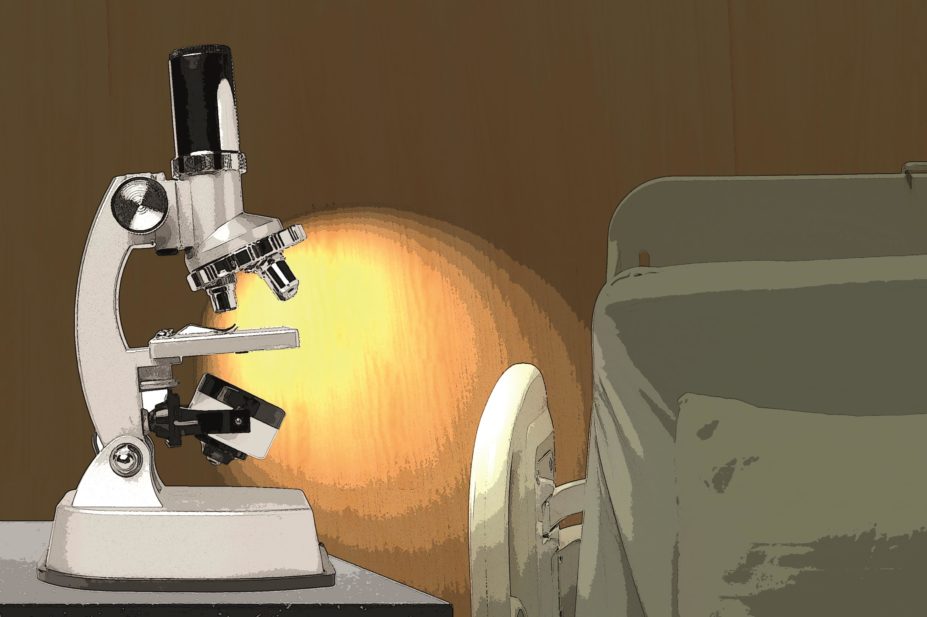
MAG / Shutterstock.com
Everyone insists on the importance of ‘pharmacy research’, yet such research, labelled as pharmacy, has not had a big enough impact on clinical sciences. There is little funding offered by funding bodies such as the Medical Research Council, the Wellcome Trust, and the Biotechnology and Biological Sciences Research Council, and the contribution of sporadic and individual research is not significant. In many cases, the main output of efforts in pharmacy service development is posters and abstracts presented at pharmacy conferences, which are applauded but then largely forgotten, since a lack of a robust scientific methodology makes them irreproducible.
As Sheri L Koshman, associate professor of medicine at the University of Alberta, Canada, notes in her comment piece, the term ‘pharmacy research’ has become ambiguous and its scope and aim lacks clarity. Pharmacy is a broad discipline covering the life cycle of drugs, from the point at which targets are discovered to when they turn into medicines, and encompasses their delivery, distribution, dispensing and management. This means that the discipline of pharmacy cuts through all aspects of life sciences, from drug discovery and development to clinical sciences and healthcare service development and, by definition, cannot be contained and isolated. The real research questions are beyond pharmacy as a profession. Pharmacists can only contribute to answering questions and finding solutions if they consider themselves as part of a large, diverse, multidisciplinary team of researchers. In this sense they can be unique assets in translational research, where a deep understanding of basic science marries expertise and experience in the application of science to patients. Pharmacists can be champions of the ‘bench to bedside’ approach in research in interdisciplinary teams. Since 2004, health research funding policy has shifted away from basic science and aetiological projects towards a more translational focus for research (see http://www.ukcrc.org/wp-content/uploads/2015/08/UKCRCHealthResearchAnalysis2014-WEB.pdf). Unfortunately, there is no data on how many of these translational research projects involve pharmacists. Pharmacists should be leading – or should at least be essential members of – these project teams. Translational medicine has three main components: bench, bedside and community, and who can contribute more to all three components than pharmacists?
Pharmacists can be champions of the ‘bench to bedside’ approach in research in interdisciplinary teams
There is a place for pharmacy practice research, which is mainly focused on service development, increasing efficiency in healthcare provision and improving patient outcomes through pharmacy and pharmaceutical interventions. However, in order to achieve the status of ‘research’, they need to meet the main criteria of research: innovation, applicability and reproducibility. A glance at the research output in pharmacy practice shows that the majority of papers published in the past few years lack at least one of these criteria. Most of these efforts are the result of individuals in the profession taking initiative, without any funding or a systematic approach to a research question, and their outcomes are not even formally published as part of the research project. Community pharmacy, which is mostly private sector, does not have a clear ambition (and budget) for developing new services following a scientific methodology, and for disseminating the outcomes via publishing. While many community pharmacies encourage staff to perform research, they do not receive financial or moral support when they decide to develop new research projects. Research is expensive and time consuming, and some pharmacy owners would probably prefer it if pharmacy teams did not spend time on research projects that will not result in direct contributions to the company’s bottom line. There is no incentive for community pharmacies from the government or funding agencies to encourage them to dedicate part of their activities to develop and disseminate innovative, applicable and reproducible services that would increase efficiency and improve patient outcomes.
The same applies to the hospital sector. Many hospital pharmacists have a line about ‘research’ on their job descriptions and some of them do develop new services. Yet, these efforts are not systematic and the outcomes are not disseminated in the same way as other research projects in clinical sciences.
The training and education of pharmacists needs to change dramatically to enable pharmacists to conduct research. There have been long debates about the oversupply of pharmacists and the need to put a cap on student numbers. However, this debate, valid or otherwise, only has meaning if we see pharmacists merely as healthcare delivery workers. Pharmacy is much more than this. Pharmacists need to be integral parts of translational research projects and, in this context, we probably are facing a severe shortage of research pharmacists. There is not much funding available for so-called “pharmacy research”, but the funding for translational research (i.e. prevention, detection and diagnosis, treatment development, treatment evaluation, disease management and health services) is growing. Campaigns should encourage educational centres to train pharmacists as indispensible, qualified researchers. Funding agencies do not grant funds to professions or disciplines — they offer grants to research questions and solutions. Pharmacists could put themselves forward to become part of research teams, or could come up with questions and secure funding to begin investigations and set up interdisciplinary research teams. This requires a deep understanding of the research process and scientific methods. Publishing a couple of guidelines here and there on how to do research is insufficient. Research should be embedded within the academic training and practice of pharmacists, no matter which career path they choose to pursue after graduation.
Professional bodies and societies, such as the Royal Pharmaceutical Society (RPS), and the UK pharmacy regulator General Pharmaceutical Council need to place extra emphasis on pharmacy as a science and discipline rather than just a profession. The RPS can play an integral part in promoting the role of pharmacists in research projects and, as a thought leader, can encourage educational centres and pharmacies to train and nurture a generation of ‘scientist-practitioners’ or clinical scientists. It can also work with the private sector and the government to find solutions that would incentivise community pharmacies to perform pharmacy practice research as part of their function.
Since the national boards of the RPS currently have no representation from pharmaceutical scientists or industrial pharmacists, there have been no campaigns on the role of pharmacists in multidisciplinary research projects. Introducing appropriate representation from clinical science would be a great first step in influencing the agenda of the RPS towards enhancing the role of pharmacists in publicly funded translational research, as well as influencing pharmacy education to train and encourage research as an important alternative career path for pharmacists.
For the current campaigns on the agenda of the English Pharmacy Board, visit: http://www.rpharms.com/how-we-are-governed/english-pharmacy-board.asp
For the current campaigns on the agenda of the Scotish Pharmacy Board, visit: http://www.rpharms.com/how-we-are-governed/scottish-pharmacy-board.asp
For the current campaigns on the agenda of the Welsh Pharmacy Board, visit: http://www.rpharms.com/how-we-are-governed/welsh-pharmacy-board.asp
References


